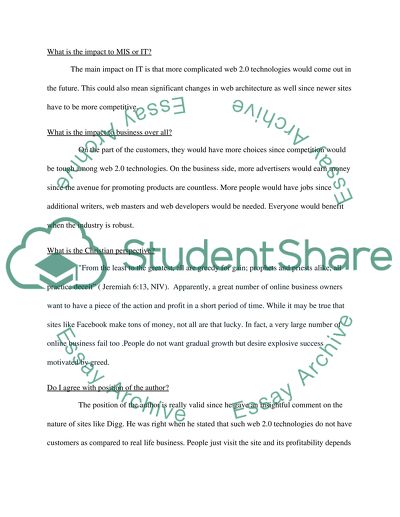Cite this document
(“Digg: A Cautionary Tale for Web 2.0 Companies Research Paper”, n.d.)
Digg: A Cautionary Tale for Web 2.0 Companies Research Paper. Retrieved from https://studentshare.org/information-technology/1572320-mism-current-trend-summary
Digg: A Cautionary Tale for Web 2.0 Companies Research Paper. Retrieved from https://studentshare.org/information-technology/1572320-mism-current-trend-summary
(Digg: A Cautionary Tale for Web 2.0 Companies Research Paper)
Digg: A Cautionary Tale for Web 2.0 Companies Research Paper. https://studentshare.org/information-technology/1572320-mism-current-trend-summary.
Digg: A Cautionary Tale for Web 2.0 Companies Research Paper. https://studentshare.org/information-technology/1572320-mism-current-trend-summary.
“Digg: A Cautionary Tale for Web 2.0 Companies Research Paper”, n.d. https://studentshare.org/information-technology/1572320-mism-current-trend-summary.


